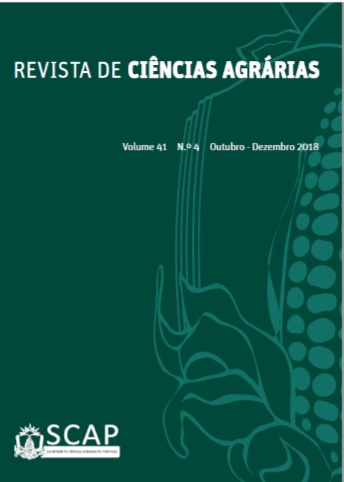Agronomic performance of cowpea genotypes
DOI:
https://doi.org/10.19084/RCA17309Abstract
This study evaluated the agronomic performance of cultivars and elite lines of semi-prostrate cowpea in the North of Minas Gerais. We analyzed 16 elite lines and four cultivars of semi-prostrate cowpea, in summer-autumn crops (2014 and 2015). The experimental design was in randomized blocks with four replications. The genotypes were evaluated for growth habitat, lodging, value of cultivation, index and seed yield. The data were submitted to individual and joint variance analysis involving two years. There was a significant effect of interaction genotype and year for the variables growth habit and seed yield. For the value of cultivation there was a significant effect only for genotypes. The variables lodging and grain index were significantly influenced for year. There were more lodging and grain index in the summer-autumn crop of 2015. All genotypes have adequate growth habit and characterized as semi-prostate or prostate. The MNC04-774F-90, MNC04-769F-26 and BRS Marataoã genotypes stand out amongst the other genotypes because they have higher seed yields and values of cultivation in the two evaluated years, which shows good productive potential and possibility of adaptation to cultivation in the North of the Minas Gerais.


